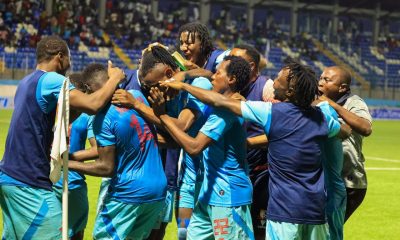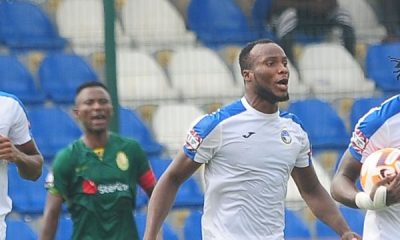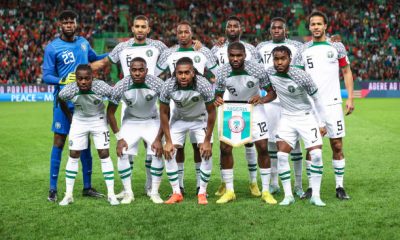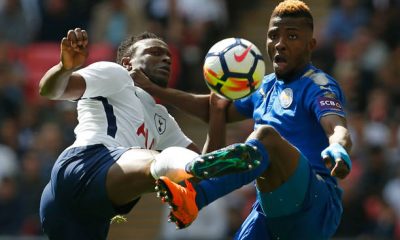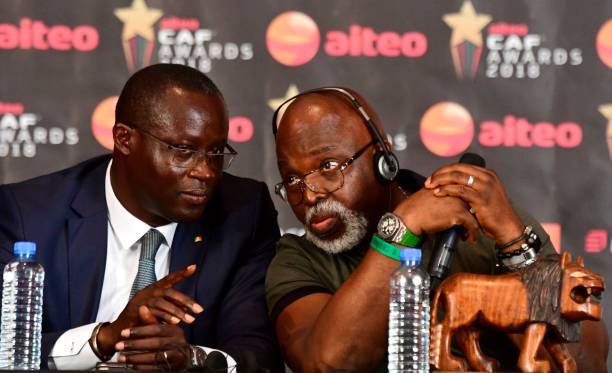
Pinnick Falls Short by One Vote in Fierce FIFA Council Battle
Nigeria’s Amaju Melvin Pinnick has lost his place on the FIFA Council, missing out by the slimmest of margins—just one vote—in a tightly contested election during the 14th CAF Extraordinary Congress held in Cairo, Egypt, on Wednesday.
The former Nigeria Football Federation (NFF) president finished with 28 votes, just behind Mauritania’s Ahmed Yahya and Djibouti’s Souleman Hassan Waberi, who each secured 29 votes to claim two of Africa’s available seats on FIFA’s decision-making body.
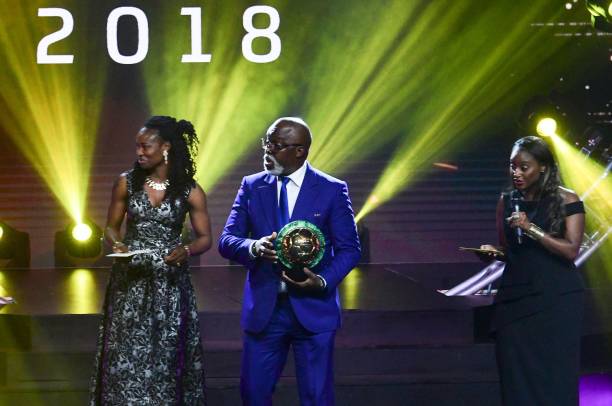
The election was fiercely contested, with Morocco’s Fouzi Lekjaa dominating the vote, securing a staggering 49 votes, while Egypt’s Hany Abou Rida and Niger Republic’s Djibrilla Hima Hamidou also claimed spots with 35 votes each.
The women’s seat went to Kanizat Ibrahim from Comoros, who won with 30 votes, defeating former FIFA Council and IOC member Lydia Nsekera (13 votes) and incumbent Isha Johansen (7 votes).
Tough Competition Leaves Pinnick Empty-Handed
With only a handful of seats available, the election was always going to be cutthroat. Pinnick, who had served on the FIFA Council since 2021, was seeking re-election but struggled to secure enough backing among CAF delegates.
His defeat means Nigeria no longer has direct representation on the FIFA Council, a significant blow to the country’s influence in global football governance.
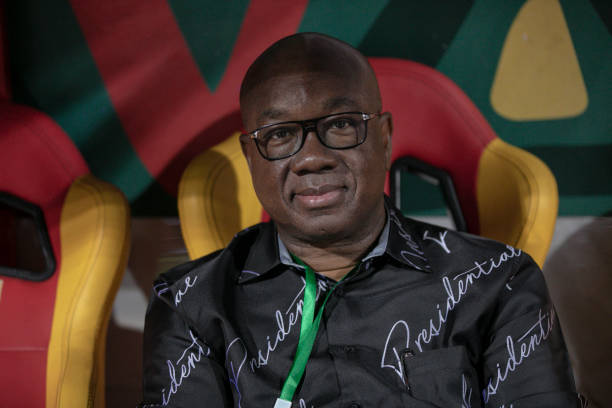
Several other candidates also fell short, including:
- Zambia’s Andrew Kamanga – 19 votes
- Côte d’Ivoire’s Yacine Idriss Diallo – 18 votes
- Senegal’s Augustin Senghor – 13 votes
- Benin Republic’s Mathurin De Chacus – withdrew before voting
The loss leaves Pinnick in a tough spot, as he was one of the few Nigerians to hold a high-ranking position within FIFA. His defeat raises concerns about Nigeria’s influence in African football politics, especially as CAF elections continue to reshape the leadership of the sport on the continent.
Motsepe Re-Elected Unopposed as CAF President
While the FIFA Council elections were competitive, CAF President Patrice Motsepe was re-elected unopposed for a second four-year term.
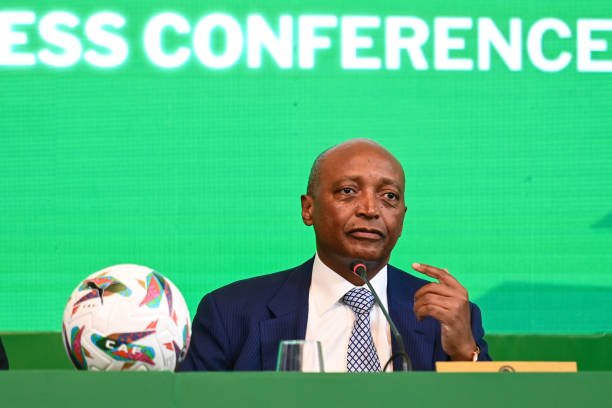
The South African businessman has overseen significant financial growth since taking charge in 2021, with the 2023 Africa Cup of Nations (AFCON) generating a record $72 million in profit—an 18-fold increase from the previous edition.
Motsepe acknowledged that progress had been made but pointed out that football infrastructure remains a major challenge in Africa.
“In 2021, there were 36 African countries unable to host international matches in their own stadiums. That number has dropped to 12, but it remains a concern,” Motsepe said. “At CAF and FIFA, we must continue investing in sports infrastructure development.”
Eto’o Joins CAF Executive Committee After Court Battle
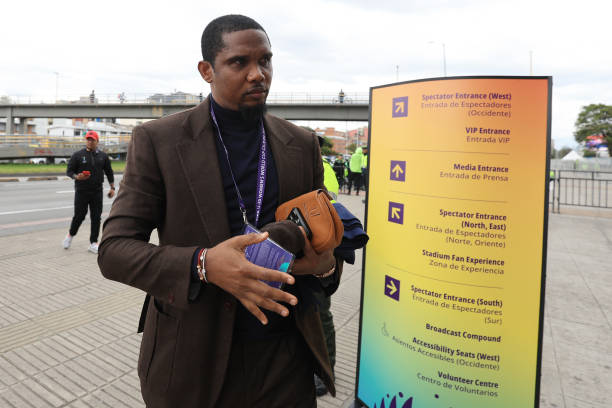
Another major headline from the elections was Samuel Eto’o’s successful bid for a seat on the CAF Executive Committee.
The Cameroonian football legend was initially barred from contesting due to governance concerns, but the Court of Arbitration for Sport (CAS) overturned the ruling, clearing his path to election.
The former Barcelona and Inter Milan striker, who has been president of the Cameroon Football Federation (FECAFOOT) since 2021, was welcomed warmly by delegates as he took his place on the committee.
New Faces, New Era for African Football
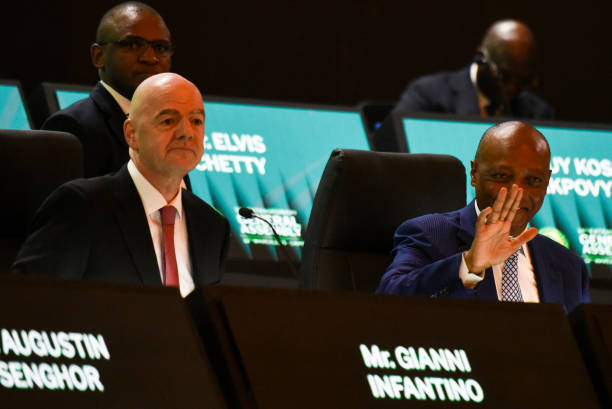
With the elections concluded, Africa’s football leadership is now set for a new chapter. The final list of FIFA Council and CAF Executive Committee members reflects a mix of experienced figures and fresh faces.
FIFA Council Representatives (Africa):
- Patrice Motsepe (South Africa) – CAF President
- Fouzi Lekjaa (Morocco)
- Hany Abou Rida (Egypt)
- Djibrilla Hima Hamidou (Niger Republic)
- Ahmed Yahya (Mauritania)
- Souleman Hassan Waberi (Djibouti)
- Kanizat Ibrahim (Comoros) – Women’s Representative
CAF Executive Committee Members:
- Samuel Eto’o (Cameroon – UNIFFAC)
- Wallace Karia (Tanzania – CECAFA)
- Sadhi Walid (North Africa – UNAF)
- Mustapha Ishola Raji (Liberia – WAFU A)
- Kurt Edwin-Simeon Okraku (Ghana – WAFU B)
- Sobha Mohamed Ally Samir (Mauritius – COSAFA)
- Feizal Ismael Sidat (Mozambique – COSAFA)
- Bestine Kazadi Ditabala (DR Congo – Female Representative)
What’s Next for Pinnick and Nigeria?
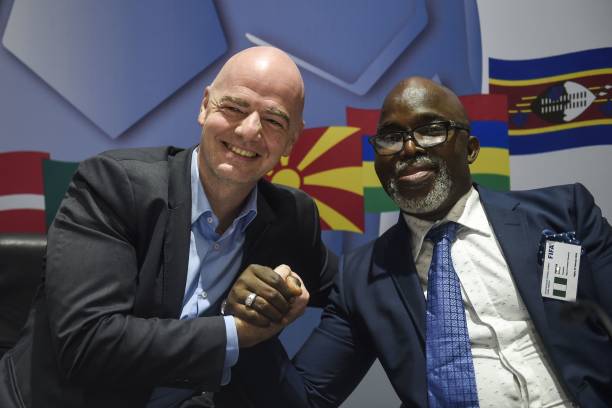
With Pinnick’s exit from the FIFA Council, Nigeria’s role in global football politics is now uncertain. The loss reduces the country’s direct influence in FIFA, and questions will be raised about how Nigeria can regain a seat at football’s highest table.
SUGGESTED FOR YOU
Super Eagles Squad List for Rwanda & Zimbabwe: Osimhen & Lookman Lead Attack, Iheanacho Dropped
For Pinnick himself, this could be a turning point in his career. Will he attempt to bounce back and pursue another role in CAF or FIFA? Or will he step away from football governance altogether?
One thing is clear—African football is undergoing a significant transformation, and Nigeria will need to find new strategies to remain relevant on the global stage.


